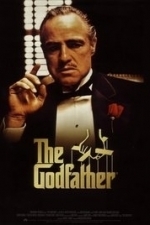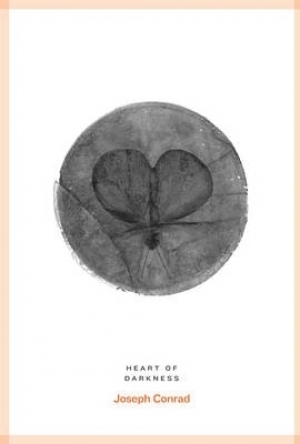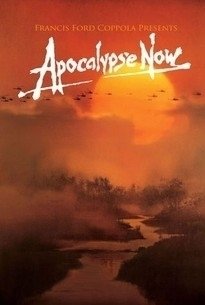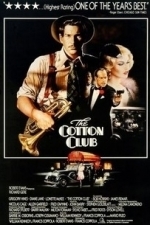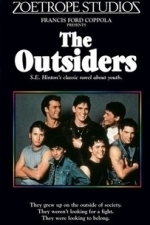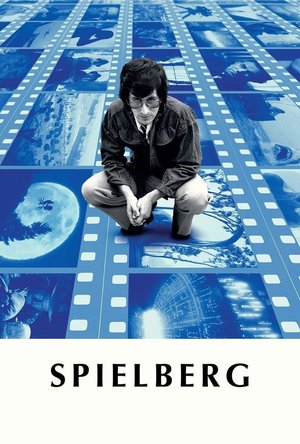Search
Search results
Antonio Banderas recommended The Godfather (1972) in Movies (curated)
Bill Maher recommended Heart of Darkness in Books (curated)
Robert Cox (3 KP) rated Apocalypse Now (1979) in Movies
Apr 25, 2017
Aaron Taylor-Johnson recommended Apocalypse Now (1979) in Movies (curated)
A.O. Scott recommended The Godfather (1972) in Movies (curated)
Andy K (10821 KP) rated The Cotton Club (1984) in Movies
Jul 28, 2019
Richard Gere has made a lot of forgettable movies
Really. Seriously. If you think about it. The guy has been acting since the early 70s and he is mostly remembered for Chicago and Pretty Woman. Honorable mentions maybe to Officer and a Gentleman, Primal Fear or American Gigolo.
Director Francis Ford Coppola I'm sure was hoping to recreate the magic of the 1920s/1930s jazz club gangster era as he did with The Godfather in this film and it just didn't work. It seemed I just didn't care about the characters nearly as much and the case just wasn't up to it. Any time you have James Remar is your main bad guy in a film you are in trouble.
The highlight of the film for me was all the great jazz music, large vaudeville song and dance numbers and great tap dancing scenes with the great Gregory Hines. It was cool to see a very young "Larry" Fishburne and lots of other people you know from other movies, but it just wasn't enough. Nicolas Cage overacting (I know what a shocker) and over the top violence just to have over the top violence.
You won't find the caliber of Marlon Brando, Al Pacino, Robert Duvall or James Caan here.
I really wanted to love this film as it has been on my "to watch" list for a long time; however, I was ultimately disappointed.
Director Francis Ford Coppola I'm sure was hoping to recreate the magic of the 1920s/1930s jazz club gangster era as he did with The Godfather in this film and it just didn't work. It seemed I just didn't care about the characters nearly as much and the case just wasn't up to it. Any time you have James Remar is your main bad guy in a film you are in trouble.
The highlight of the film for me was all the great jazz music, large vaudeville song and dance numbers and great tap dancing scenes with the great Gregory Hines. It was cool to see a very young "Larry" Fishburne and lots of other people you know from other movies, but it just wasn't enough. Nicolas Cage overacting (I know what a shocker) and over the top violence just to have over the top violence.
You won't find the caliber of Marlon Brando, Al Pacino, Robert Duvall or James Caan here.
I really wanted to love this film as it has been on my "to watch" list for a long time; however, I was ultimately disappointed.
Mike Wilder (20 KP) rated The Outsiders (1983) in Movies
May 30, 2018
A very hard hitting and moving story
Contains spoilers, click to show
A very hard hitting and moving story about rival gangs and the effect it has on the lives of the people in and around the gangs. The story follows two of the younger greasers after one of them accidentally kills a rival gang member in self defence. They leave town and believe they will have to remain on the run forever.
With a cast to die for, The Outsiders is an incredible, hard hitting film. Portrayed in a believable and moving way, the cast includes Matt Dillon, Emilio Estevez, Diane Lane, Patrick Swayze, Tom Cruise, C. Thomas Howell and Rob Lowe. But Ralph Macchio stands out in this film as Johnny Cade.
The direction of Francis Ford Coppola along with stunning performances from the cast bring this film to life. You feel for the characters as they take you on an emotional roller-coaster. You laugh along with them and share in the anguish and feel the pain they all go through just to survive. It is hard not to watch the film now without comparing other films the cast have made since this film. But for many of the cast, it is up there with the finest performances of their career.
The film is an adaption of a classic novel by S.E. Hinton who was just 16 when the novel was first published in 1967. It was also her first novel. The book has become part of school English curriculum
With a cast to die for, The Outsiders is an incredible, hard hitting film. Portrayed in a believable and moving way, the cast includes Matt Dillon, Emilio Estevez, Diane Lane, Patrick Swayze, Tom Cruise, C. Thomas Howell and Rob Lowe. But Ralph Macchio stands out in this film as Johnny Cade.
The direction of Francis Ford Coppola along with stunning performances from the cast bring this film to life. You feel for the characters as they take you on an emotional roller-coaster. You laugh along with them and share in the anguish and feel the pain they all go through just to survive. It is hard not to watch the film now without comparing other films the cast have made since this film. But for many of the cast, it is up there with the finest performances of their career.
The film is an adaption of a classic novel by S.E. Hinton who was just 16 when the novel was first published in 1967. It was also her first novel. The book has become part of school English curriculum
Colin O'Donoghue recommended The Conversation (1974) in Movies (curated)
ELLDBRY (0 KP) rated The Godfather (1972) in Movies
Apr 16, 2020
10/10
Contains spoilers, click to show
"I believe in America…."
What is it about someone you care about that sets them apart? Are they family, a friend, or someone you feel just needs help? What causes you to go the extra mile to put someone else ahead of yourself? You may find the answers in your religion, your upbringing, or in movies. For example, say your daughter goes out on a date with a guy and she is violently beaten by him and one of his friends. You go see her in the hospital and she cannot even weep because of the pain. So trying to keep your cool you press charges and try by the legal means to bring the young men to justice. It doesn't happen, their sentences are suspended. That may make you lose faith in the system that is supposed to protect you. So now you go to someone else who could help. This person is a bigshot, a pezzonovante in his own way but outside the system. You explain what happened and what you did, and all he says is 'why didn't you come to me first?' How many times in your life have some of us gone to others that don't care and asked for help instead of going to the ones that actually care. And the problem is solved. Imagine for another example that your father is in the hospital and men are coming to kill him. And you are the only one there that can help him. Imagine that you had your own dreams and your own goals that were different to what your father wanted. But in this moment you put all that aside to help your father survive. You assure him that everything will be ok and you are with him now. You bluff out the men trying to kill him and your father is saved. Most of us may never have to defend our dads from someone trying to kill him. But seeing someone laying helpless in a hospital bed in need of help we can all relate to. Every son, every daughter, every parent, every sibling, every friend. You see everybody wants to talk about the gangster mafia element of The Godfather, and say that is what it is all about. But family plays an even bigger role in the story by being the driving force behind the main characters. Family, love, loyalty, sacrifice all these elements are used in the movie to bring a standard boring mafia shootout movie to the level of greatest movie of all time. Francis Ford Coppola used as much he could to bring this point home. The wedding scene was not made up by any means but instead taken from other weddings witnessed by every Italian who has ever been to a wedding. Bringing envelopes filled with money to the bride, nieces dancing on the feet of uncle's, people waiting in line to see the father of the bride, sandwiches in white paper being tossed around. 'two gabagool, one proshootoh!' Then go to the kitchen to make spaghetti. Need a recipe? Try 'a little of oil then fry some garlic, throw in some tomatoes and tomato paste, fry it, make sure it does not stick, get it to boil, put in all your sausage and meatballs, add some wine and a little bit of sugar and that's the trick.' That recipe has been in Italian kitchens long before the cameras rolled. Need an idea for some quality time with the kids, well go to work do what you have to do and pick up some cannolis before you get home. Just remember to leave the gun and take the cannolis. Coppola always said he had to be good or no cannolis when his dad got home to share with the family. Coppola also put in his own family to work, his dad scored the movie, his sister Talia was Connie, and his daughter played the baby in the baptism scene. The family was on both sides of the family. But for me the movie revolves around Don Vito Corleone and Marlon Brando. Mario Puzo based the character of Don Corleone on his mother, everytime the Don opened his mouth all that came out was the passion of his mother, her wisdom, her ruthlessness, and her unconquerable love for her family and for life itself. Therefore only the greatest actor of the day will do to play the part. Coppola agreed and suggested either Brando or Laurence Olivier. Olivier was considered and it would have been interesting but he eventually passed on the role. Only two men wanted Brando, Coppola and Puzo. Brando had a history of being difficult and the studio executives nearly vetoed his casting. Coppola was able to make a deal with in order to cast Brando. Brando had to agree to do the movie for nothing, he had to put up a bond in order to cover cost overruns, and he had to do a screen test. They only got to the screen test because Brando transformed himself from a forty year old man into a sixty year old mafia don before their eyes in a matter of minutes. When the executives saw the footage they said ‘no no no, WOW THAT'S INCREDIBLE!’ Brando would be The Godfather. But Brando still needed a little extra help. If you watch the movie, everytime Don Corleone is speaking and stops and looks off in the distance he is reading from a card with his lines on it. He still won an oscar though. Two scenes are my favorite in the movie. One is the scene in the restaurant, I feel like I don’t need to explain it, because it is the most famous scene. Just know that without that scene the movie would not have existed. When you shoot a movie, the scenes are viewed day by day by the studio decision makers. They were hating what they were seeing, everything shot before the restaurant scene was met with cruel criticism by everyone on the outside not working on the movie. All Coppola could do was show them this scene and the movie was not only saved but validated. There are moments in the movie that other scenes build to, the restaurant was one of those scenes. You know of it’s importance because of everything that preceded it. The other scene is the meeting. Don Corleone stands before the other mafia dons and surrenders to them and their wishes. He reasons with them in order to come to a peaceful solution. But there is a catch: if you mess with my other son or if ‘he’s struck by a bolt of lightning. Then I’m going to blame some of the people in this room and that I do not forgive. So with that aside let me say that I swear, on the souls of my grandchildren, that I will not be the one that breaks the peace that we’ve made here today.’ There is a time for peace and a time for reckoning. This scene is my favorite because you believe him, you go along with his plea for peace. But the other dons do not realize it is not a surrender but a tactical retreat.
So the movie went on to make a lot of money, win a bunch of awards, and won it’s way on a bunch of lists that say it’s great. I was lucky enough to not know that when I first saw the movie. I saw it for what it was: a father and three sons. One son was intense and savage, another was sweet and innocent, another was conviving and calculating, the father was all those combined. But the father was the steadying force in all their lives. That is why when they all find out he was shot they react in ways we all would react. When you see the father lying in the street his second son is there to help but can’t, all he can do is cry and yell ‘papa.’ The first son nearly strong arms one of his father’s closest associates because he wants someone to beat up. The third son panics and tries to do whatever he can to help. That is for the audience, and that that’s how everyone relates. Finally, I’ll quote Martin Sheen: ‘The Godfather is the best filmmaking ever in the history of American cinema. There is nothing that speaks more to who we are, where we came from, what we stand for, and where we’re gonna go. That’s the work of a true genius.’ I agree. It is my favorite, of what I’ve seen of course.
".... Don Corleone."
What is it about someone you care about that sets them apart? Are they family, a friend, or someone you feel just needs help? What causes you to go the extra mile to put someone else ahead of yourself? You may find the answers in your religion, your upbringing, or in movies. For example, say your daughter goes out on a date with a guy and she is violently beaten by him and one of his friends. You go see her in the hospital and she cannot even weep because of the pain. So trying to keep your cool you press charges and try by the legal means to bring the young men to justice. It doesn't happen, their sentences are suspended. That may make you lose faith in the system that is supposed to protect you. So now you go to someone else who could help. This person is a bigshot, a pezzonovante in his own way but outside the system. You explain what happened and what you did, and all he says is 'why didn't you come to me first?' How many times in your life have some of us gone to others that don't care and asked for help instead of going to the ones that actually care. And the problem is solved. Imagine for another example that your father is in the hospital and men are coming to kill him. And you are the only one there that can help him. Imagine that you had your own dreams and your own goals that were different to what your father wanted. But in this moment you put all that aside to help your father survive. You assure him that everything will be ok and you are with him now. You bluff out the men trying to kill him and your father is saved. Most of us may never have to defend our dads from someone trying to kill him. But seeing someone laying helpless in a hospital bed in need of help we can all relate to. Every son, every daughter, every parent, every sibling, every friend. You see everybody wants to talk about the gangster mafia element of The Godfather, and say that is what it is all about. But family plays an even bigger role in the story by being the driving force behind the main characters. Family, love, loyalty, sacrifice all these elements are used in the movie to bring a standard boring mafia shootout movie to the level of greatest movie of all time. Francis Ford Coppola used as much he could to bring this point home. The wedding scene was not made up by any means but instead taken from other weddings witnessed by every Italian who has ever been to a wedding. Bringing envelopes filled with money to the bride, nieces dancing on the feet of uncle's, people waiting in line to see the father of the bride, sandwiches in white paper being tossed around. 'two gabagool, one proshootoh!' Then go to the kitchen to make spaghetti. Need a recipe? Try 'a little of oil then fry some garlic, throw in some tomatoes and tomato paste, fry it, make sure it does not stick, get it to boil, put in all your sausage and meatballs, add some wine and a little bit of sugar and that's the trick.' That recipe has been in Italian kitchens long before the cameras rolled. Need an idea for some quality time with the kids, well go to work do what you have to do and pick up some cannolis before you get home. Just remember to leave the gun and take the cannolis. Coppola always said he had to be good or no cannolis when his dad got home to share with the family. Coppola also put in his own family to work, his dad scored the movie, his sister Talia was Connie, and his daughter played the baby in the baptism scene. The family was on both sides of the family. But for me the movie revolves around Don Vito Corleone and Marlon Brando. Mario Puzo based the character of Don Corleone on his mother, everytime the Don opened his mouth all that came out was the passion of his mother, her wisdom, her ruthlessness, and her unconquerable love for her family and for life itself. Therefore only the greatest actor of the day will do to play the part. Coppola agreed and suggested either Brando or Laurence Olivier. Olivier was considered and it would have been interesting but he eventually passed on the role. Only two men wanted Brando, Coppola and Puzo. Brando had a history of being difficult and the studio executives nearly vetoed his casting. Coppola was able to make a deal with in order to cast Brando. Brando had to agree to do the movie for nothing, he had to put up a bond in order to cover cost overruns, and he had to do a screen test. They only got to the screen test because Brando transformed himself from a forty year old man into a sixty year old mafia don before their eyes in a matter of minutes. When the executives saw the footage they said ‘no no no, WOW THAT'S INCREDIBLE!’ Brando would be The Godfather. But Brando still needed a little extra help. If you watch the movie, everytime Don Corleone is speaking and stops and looks off in the distance he is reading from a card with his lines on it. He still won an oscar though. Two scenes are my favorite in the movie. One is the scene in the restaurant, I feel like I don’t need to explain it, because it is the most famous scene. Just know that without that scene the movie would not have existed. When you shoot a movie, the scenes are viewed day by day by the studio decision makers. They were hating what they were seeing, everything shot before the restaurant scene was met with cruel criticism by everyone on the outside not working on the movie. All Coppola could do was show them this scene and the movie was not only saved but validated. There are moments in the movie that other scenes build to, the restaurant was one of those scenes. You know of it’s importance because of everything that preceded it. The other scene is the meeting. Don Corleone stands before the other mafia dons and surrenders to them and their wishes. He reasons with them in order to come to a peaceful solution. But there is a catch: if you mess with my other son or if ‘he’s struck by a bolt of lightning. Then I’m going to blame some of the people in this room and that I do not forgive. So with that aside let me say that I swear, on the souls of my grandchildren, that I will not be the one that breaks the peace that we’ve made here today.’ There is a time for peace and a time for reckoning. This scene is my favorite because you believe him, you go along with his plea for peace. But the other dons do not realize it is not a surrender but a tactical retreat.
So the movie went on to make a lot of money, win a bunch of awards, and won it’s way on a bunch of lists that say it’s great. I was lucky enough to not know that when I first saw the movie. I saw it for what it was: a father and three sons. One son was intense and savage, another was sweet and innocent, another was conviving and calculating, the father was all those combined. But the father was the steadying force in all their lives. That is why when they all find out he was shot they react in ways we all would react. When you see the father lying in the street his second son is there to help but can’t, all he can do is cry and yell ‘papa.’ The first son nearly strong arms one of his father’s closest associates because he wants someone to beat up. The third son panics and tries to do whatever he can to help. That is for the audience, and that that’s how everyone relates. Finally, I’ll quote Martin Sheen: ‘The Godfather is the best filmmaking ever in the history of American cinema. There is nothing that speaks more to who we are, where we came from, what we stand for, and where we’re gonna go. That’s the work of a true genius.’ I agree. It is my favorite, of what I’ve seen of course.
".... Don Corleone."
Bob Mann (459 KP) rated Spielberg (2017) in Movies
Sep 29, 2021
On making Drew Barrymore cry.
“Spielberg” is an HBO-produced documentary by documentarian Susan Lacy. You’ll never guess who the subject is?!
Steven Spielberg is a product of one of the most surprising revolutions in Hollywood in the late 70’s: one of a set of wunderkind directors alongside such luminaries as George Lucas, Francis Ford Coppola, John Milius, Brian De Palma and Martin Scorcese. These men (only men, it should be noted!) were ready to cock a snook at Hollywood’s traditional studio system to break rules (case in point, Star Wars’ lack of opening credits) and move cinema into the format that would last to this day.
As this excellent documentary makes clear, Spielberg was one of the least rebellious of the movie-brats. Even though (astoundingly) he blagged himself a production office at Universal (after hiding during the Tram Tour toilet stop!), his path to the top was through hard graft on multiple Universal TV shows, after recognition of his talents by Universal exec Sidney Sheinberg who speaks in the film.
Before we get to that stage of his life, we cover his childhood back-story as a reluctant Jew living in a non-Jewish neighbourhood, driven to fill his time with tormenting his sisters and movie-making with a Super 8 camera. Scenes of home videos, photos and his early attempts at special effects are all fascinating. The impact of his Bohemian mother Leah and workaholic father Arnold, and particularly the very surprising relationship breakdown that happened between them, go a long way to explain the constant return to ‘father issues’ in many of his films such as “E.T.”, “Close Encounters of the Third Kind”, “Hook” and “Indiana Jones and the Last Crusade”.
The majority of the film though settles down into a roughly chronological review of the highlights of his movie career, with particular emphasis justly being placed on some of the key watershed moments in that career. Most of his films get at least a mention, but “Jaws”, “E.T.”, “Schindler’s List”, “The Color Purple”, “Jurassic Park”, “Munich” and “Empire of the Sun” get more focus. It is such a wonderful trip down my cinematic memory lane. I also forget just what cinematic majesty and craftsmanship is present in these films: I just hope that at some point this will get a Blu-Ray or DVD release so it can be properly appreciated (rather than viewing it on a tiny airplane screen which is how I watched this): the combination of film clips in here is breathtaking.
As might be expected for a documentary about the great director, there is plenty of ‘behind the camera’ footage on show, some of which is fascinating. Spielberg could always get the very best performances out of the youngsters on set, from Cary Guffey (“Toys!!”) in “Close Encounters” to a heartbreaking scene where he reduces the young Drew Barrymore to howls of emotion in “E.T.”. A master at work.
All of the movie scenes are accompanied by new interview footage from Spielberg himself, as well as warm platitudes from many of the luminaries he has worked with in the past. Directors involved include many of the the directors referenced above, as well as those modern directors influenced by him such as J.J. Abrams; his go-to cinematographers Vilmos Zsigmond and Janusz Kaminski; his ‘go-to’ composer John Williams; and stars including his go-to ‘everyman’ Richard Dreyfuss, Tom Cruise, Harrison Ford, Bob Balaban, Tom Hanks, Opray Winfrey, Leonardo DiCaprio, Christian Bale, Dustin Hoffman and James Brolin. Some of these comments are useful and insightful; some are just fairly meaningless sound bites that add nothing to the film. What all the comments are though is almost all uniformly positive.
And that’s my only criticism of the film. Like me, Susan Lacy is clearly a big fan. It is probably quite hard to find anyone who isn’t…. but perhaps Ms Lacy should have tried a bit harder! There is only limited focus on his big comedy flop of 1979, “1941”, and no mention at all of his lowest WW grossing film “Always”. And there are only a few contributors – notably film critic Janet Maslin – who are willing to stick their head above the parapet and prod into Spielberg’s weaknesses; ostensibly his tendency to veer to the sentimental and away from harder issues: the omitted “Color Purple” ‘mirror scene’ being a case in point.
This is a recommended watch for Spielberg fans. On the eve of the launch of his latest – “Ready Player One”, a film that I am personally dubious about from the trailer – it’s a great insight into the life and works of the great man. It could though have cut a slightly harder and more critical edge.
Steven Spielberg is a product of one of the most surprising revolutions in Hollywood in the late 70’s: one of a set of wunderkind directors alongside such luminaries as George Lucas, Francis Ford Coppola, John Milius, Brian De Palma and Martin Scorcese. These men (only men, it should be noted!) were ready to cock a snook at Hollywood’s traditional studio system to break rules (case in point, Star Wars’ lack of opening credits) and move cinema into the format that would last to this day.
As this excellent documentary makes clear, Spielberg was one of the least rebellious of the movie-brats. Even though (astoundingly) he blagged himself a production office at Universal (after hiding during the Tram Tour toilet stop!), his path to the top was through hard graft on multiple Universal TV shows, after recognition of his talents by Universal exec Sidney Sheinberg who speaks in the film.
Before we get to that stage of his life, we cover his childhood back-story as a reluctant Jew living in a non-Jewish neighbourhood, driven to fill his time with tormenting his sisters and movie-making with a Super 8 camera. Scenes of home videos, photos and his early attempts at special effects are all fascinating. The impact of his Bohemian mother Leah and workaholic father Arnold, and particularly the very surprising relationship breakdown that happened between them, go a long way to explain the constant return to ‘father issues’ in many of his films such as “E.T.”, “Close Encounters of the Third Kind”, “Hook” and “Indiana Jones and the Last Crusade”.
The majority of the film though settles down into a roughly chronological review of the highlights of his movie career, with particular emphasis justly being placed on some of the key watershed moments in that career. Most of his films get at least a mention, but “Jaws”, “E.T.”, “Schindler’s List”, “The Color Purple”, “Jurassic Park”, “Munich” and “Empire of the Sun” get more focus. It is such a wonderful trip down my cinematic memory lane. I also forget just what cinematic majesty and craftsmanship is present in these films: I just hope that at some point this will get a Blu-Ray or DVD release so it can be properly appreciated (rather than viewing it on a tiny airplane screen which is how I watched this): the combination of film clips in here is breathtaking.
As might be expected for a documentary about the great director, there is plenty of ‘behind the camera’ footage on show, some of which is fascinating. Spielberg could always get the very best performances out of the youngsters on set, from Cary Guffey (“Toys!!”) in “Close Encounters” to a heartbreaking scene where he reduces the young Drew Barrymore to howls of emotion in “E.T.”. A master at work.
All of the movie scenes are accompanied by new interview footage from Spielberg himself, as well as warm platitudes from many of the luminaries he has worked with in the past. Directors involved include many of the the directors referenced above, as well as those modern directors influenced by him such as J.J. Abrams; his go-to cinematographers Vilmos Zsigmond and Janusz Kaminski; his ‘go-to’ composer John Williams; and stars including his go-to ‘everyman’ Richard Dreyfuss, Tom Cruise, Harrison Ford, Bob Balaban, Tom Hanks, Opray Winfrey, Leonardo DiCaprio, Christian Bale, Dustin Hoffman and James Brolin. Some of these comments are useful and insightful; some are just fairly meaningless sound bites that add nothing to the film. What all the comments are though is almost all uniformly positive.
And that’s my only criticism of the film. Like me, Susan Lacy is clearly a big fan. It is probably quite hard to find anyone who isn’t…. but perhaps Ms Lacy should have tried a bit harder! There is only limited focus on his big comedy flop of 1979, “1941”, and no mention at all of his lowest WW grossing film “Always”. And there are only a few contributors – notably film critic Janet Maslin – who are willing to stick their head above the parapet and prod into Spielberg’s weaknesses; ostensibly his tendency to veer to the sentimental and away from harder issues: the omitted “Color Purple” ‘mirror scene’ being a case in point.
This is a recommended watch for Spielberg fans. On the eve of the launch of his latest – “Ready Player One”, a film that I am personally dubious about from the trailer – it’s a great insight into the life and works of the great man. It could though have cut a slightly harder and more critical edge.
